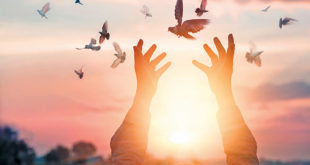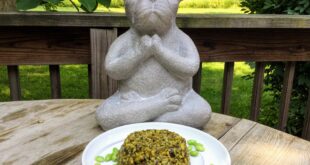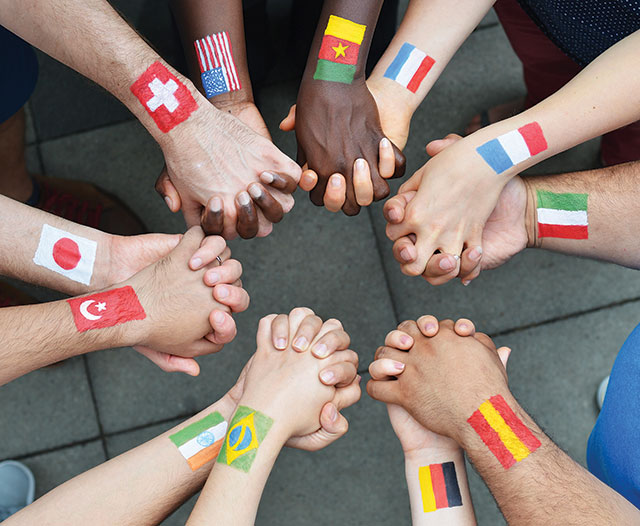
By Janae Jean and Spencer Schluter – 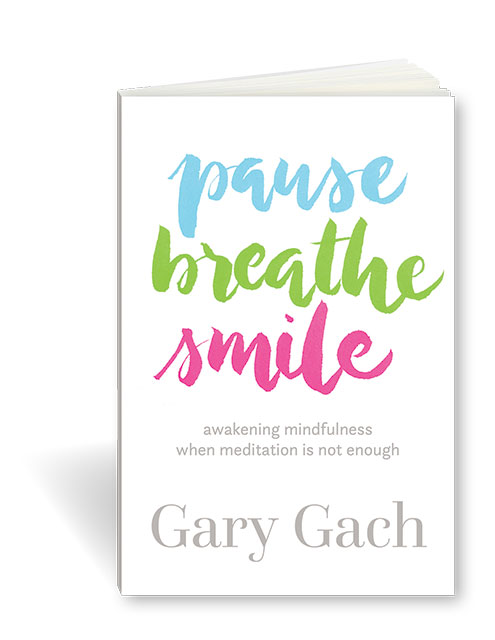
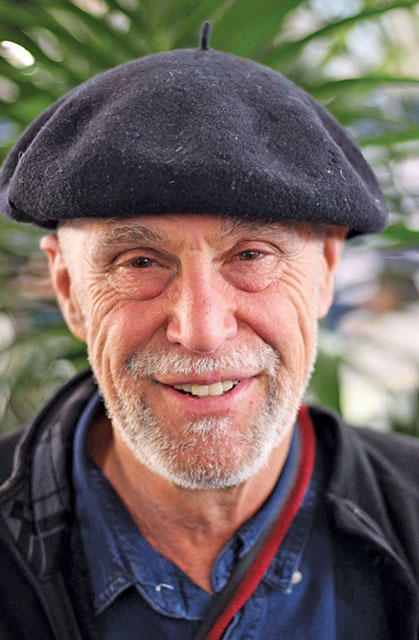 For this interview, we had the delightful experience of speaking with author, editor, translator, mystic, teacher and poet Gary Gach. Lay-ordained by Vietnamese Buddhist and peace activist Thich Nhat Hanh in 2008, Gary has authored, translated, and edited numerous books, including The Complete Idiot’s Guide to Understanding Buddhism. Gary lives in San Francisco and has worked as an actor, stevedore, typographer, legal secretary, editor-in-chief, webmaster and teacher (most frequently of late at Stanford Continuing Studies.) Besides Buddhism, he teaches haiku and mentors in English composition (most recently for doctoral students at Sofia University (California.) We spoke with Gary about the meaning of community, mindfulness and about the intentions he set for his latest book, Pause, Breathe, Smile: Awakening Mindfulness when Meditation is Not Enough.
For this interview, we had the delightful experience of speaking with author, editor, translator, mystic, teacher and poet Gary Gach. Lay-ordained by Vietnamese Buddhist and peace activist Thich Nhat Hanh in 2008, Gary has authored, translated, and edited numerous books, including The Complete Idiot’s Guide to Understanding Buddhism. Gary lives in San Francisco and has worked as an actor, stevedore, typographer, legal secretary, editor-in-chief, webmaster and teacher (most frequently of late at Stanford Continuing Studies.) Besides Buddhism, he teaches haiku and mentors in English composition (most recently for doctoral students at Sofia University (California.) We spoke with Gary about the meaning of community, mindfulness and about the intentions he set for his latest book, Pause, Breathe, Smile: Awakening Mindfulness when Meditation is Not Enough.
The following is only a small part of our in-depth conversation with Gary. To hear the rest of our conversation, download or stream the episode. Don’t forget to subscribe, like, review and share the Conscious Community Podcast on your preferred podcatcher app.
Spencer: We’ve talked with a lot of different guests about the meaning of consciousness from their individual perspectives and from the traditions they practice. We haven’t spent as much time talking about what “community” means in general and what “conscious community” means. What does community mean to you?
Gary: Right now, you and I, the three of us, are an energy field that represents the whole universe. And, we have listeners, who themselves are being drawn in to this community at this moment. I’d start there. [Laughs.] We’re always in relation to ourselves, other people and the universe in a way. If it is conscious, it becomes larger than ourselves, so that we can commune with all of life within us and all around us. Speaking from my personal experience, for a long, long time, I was yearning for and resistant to community.
Janae: I think that’s something that we find a lot actually in people who engage in contemplative lifestyles—contemplative practices. They’re kind of resistant to community.
SS: Yeah, I don’t really like being around other people. [Laughs.]
Gary: I was offering practice at lunchtime for people who work in a Catholic charity group. They invite lunchtime speakers. I’ve done this a couple of times, and I’ve noticed that everybody comes in, gets their meditation and goes out without any sense of what you might call in leadership terms, “teambuilding.”
They’re offering mindfulness now in sports because it’s not only about being able to focus. If you look at these basketball players now, they don’t even look at who they’re throwing the ball to because they’re so connected. They’re working as a group. They’re going as a river. Even though they’re tremendous superstar egos, when they’re on the court and they’re in the zone they’re part of this organism.
That’s a tough one, for most of us I think, it has been for me for various reasons. When you find a community, it’s the greatest thing. My teacher, Thich Nhat Hanh, says, “There’s this idea of the Buddha coming again and if the Buddha were to come again it would take the form of a community.”
I think we don’t have any disagreement that these are precarious times. These are challenging times. In order to meet the challenge, we need community. Otherwise, we become isolated like some tiger on a hillside that’s all alone or some bird that’s left the flock. But, if we can come together as a community, the magnification of consciousness in a community is something in and of itself that has a presence.
When a human being is up in front of more than a hundred people there’s something in us that goes “Ooh, a lot of consciousness there.” You’re playing the consciousness there. Once when I was in front of a thousand people, whoa, I was the focus, I was the lens. That was like another order of magnitude of that feeling. Also, I have been with a thousand people on a retreat, and we spent all day walking up a mountain, looking out from the top of a mountain and coming down. Being part of a thousand people on a narrow trail, that’s kind of winding, requires this sense of conscious community. It’s not just, “Here I am with 999 people on this retreat, and I want to get mine, so I’ve got to make sure I don’t step on other people’s toes.” No, something else happens, and you go as a river.
JJ: I feel that applies to musicians particularly. When you’re in front of an audience, even a small audience, you have this connection with people in the room. Even if you’re shy, and standoffish, and terrified of being onstage—but you feel that consciousness when you’re on the stage.
JJ: I feel that applies to musicians particularly. When you’re in front of an audience, even a small audience, you have this connection with people in the room. Even if you’re shy, and standoffish, and terrified of being onstage—but you feel that consciousness when you’re on the stage.
Gary: I also go back to when I started on this path, which was when I was very young. I came to Buddhism, meditation and consciousness at the same time as I came to writing. The early form of writing that really struck me was haiku. Everybody knows haiku, the shortest form of literature. What we’re learning now is that haiku originally wasn’t conceived as individual units. They were links in a group poem that people would get together in a great celebratory manner and practice observing this evolutionary group mind composing this group haiku called renga. It was only later that they said, “Oh, you can take the individual links and frame them unto themselves.” I say this because I’ve practiced renga with people online, and they’re just as good as renga that I’ve practiced with people face to face. That you’re aware that this is taking shape this was as a group mind, I don’t know what else to call it.
SS: Kind of like that party game where you each write a sentence and then the person who writes the next sentence has to start with the word you ended with or whatever?
Gary: The surrealists called it “exquisite corpse.” In the ‘20s, in France, that was very popular to do.
One more thing that I wanted to say, is that the world is largely a product of community. Everything I see right now is a product of so many communities of people and living beings and whatnot. And, to form “conscious community” in these times is an opportunity to address imbalanced situations that have come about through collective community effort that might have been unconscious but are there. To give you an example, that I don’t think you would disagree with, is our climate. It’s not just that one person has done this. It’s not just one individual at the head of a company that’s responsible. It’s everybody. I have never owned a car because at an early age I got the message that oil is the drum that everything is going to be dancing to. So, I just said, “Ok, I’ll let other people do it. That’s not part of my karma.” You know I haven’t stopped global warming by one hair’s breadth. I’m just conscious of all that consciousness of which I am not a part, unless I use somebody else’s oil and I get a ride from a bus driver or somebody else. In order to make any change in our climate, it will take community—a community of communities.
Janae Jean serves as editor, social media manager, recipe columnist and podcaster for Conscious Community Magazine. She has an extensive background in new media and music education. She is also the founder of Perennial Music and Arts, an arts education and healing center based in downtown Geneva, IL. Visit www.janaejean.com and www.perennialmusicandarts.com for details about Janae’s upcoming classes, lesson information, workshops, shows, articles and projects.
Spencer Schluter is the advertising account manager, social media manager and podcaster for Conscious Community Magazine. His experience includes visual communications, advertising, social media, marketing, public relations and business development. Visit www.yggstudios.com for more information about his freelance design and consulting work. He is also a master level Reiki and traditional Chinese
Qigong practitioner.
Podcast: Play in new window | Download
Subscribe: RSS
 Conscious Community Magazine Dedicated to Elevating Consciousness
Conscious Community Magazine Dedicated to Elevating Consciousness

